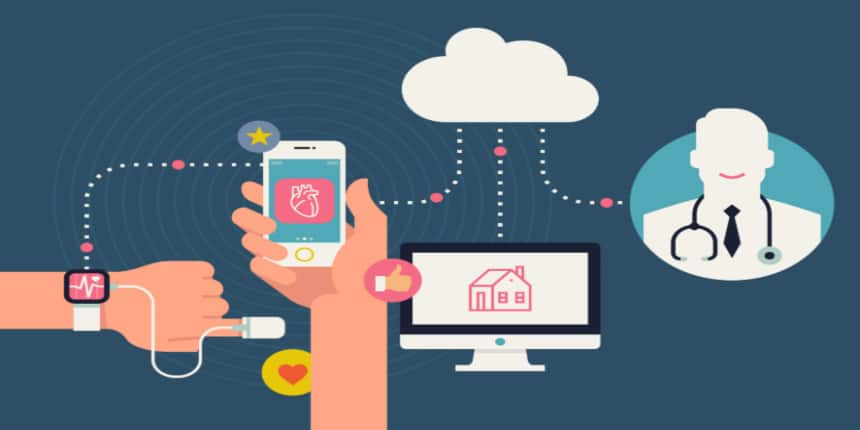NDHM Full Form
What is Full Form of NDHM ?
The full form of NDHM is National Digital Health Mission. On August 15, 2020, Prime Minister Narendra Modi announced the National Digital Health Mission. The objective of granting patients access to real-time health records is to develop an integrated healthcare system connecting practitioners and patients digitally. This will encourage timely and organized healthcare throughout the nation. To create a digital healthcare ecosystem for healthcare services across the nation, the National Digital Mission Blueprint suggested creating a body named the National Digital Health Mission. The highest degree of health and well-being for all, at all ages, is what the 2017 National Health Policy aims to achieve.

Ndhm Background
Along with empowering Indian industry, the Make in India programme has also boosted the nation's domestically created, robust, and trustworthy digital infrastructure. On August 15, 2020, India's 74th Independence Day, the Hon'ble Prime Minister of India Shri Narendra Modi unveiled the National Digital Health Mission (NDHM), which aims to build an ecosystem for better healthcare services across the nation.
The National Digital Health Mission's Key Features
The mission's institutional architecture is divided into many levels, starting at the top with the CEO and moving down to the board of directors and operations.
It is a healthcare infrastructure system that is IT-enabled.
Health ID will serve as a central location for all health-related data. This health ID system would be optional for all participating stakeholders, including healthcare professionals and Indian people. Every person interested in taking advantage of this mission will create a special health ID.
Components Of Ndhm
The NDHM (National Digital Health Mission) includes the following:
Everyone's health and wellbeing.
All ages can be in good health.
Citizens-centric services, universal health coverage
Level of care.
Accountability for Results
Delivery of services with effectiveness and efficiency.
The Goals Of the National Digital Health Mission
Creating Digital Health Systems.
Establishment of registries which will include all reliable information about medical facilities, medical personnel, healthcare workers, medications, and pharmacies.
All national stakeholders in digital health must mandate the adoption of open standards.
Creation of uniform personal health records.
The National Digital Health Mission's Vision
The creation of a national digital health ecosystem that supports universal health coverage while being effective, affordable, accessible, inclusive, timely, safe, and providing a wide range of data, information, and infrastructure services while appropriately leveraging open, interoperable, standards-based digital systems and guaranteeing the security, confidentiality, and privacy of personal health information.
National Digital Health Mission Obstacles
Leaks from health databases.
Misuse of data
Profiteering.
Foreign snooping.